ICRC still has humanitarian work cut out
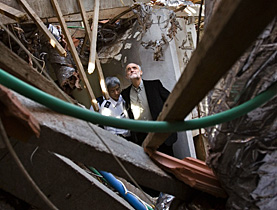
Much remains to be done worldwide despite progress on Guantanamo and cluster bombs, the head of the International Committee of the Red Cross (ICRC) tells swissinfo.ch.
ICRC President Jakob Kellenberger was speaking ahead of the 150th anniversary of the Battle of Solferino on June 24, the terrible episode that inspired Henri Dunant to found the Red Cross.
In 2009 the Red Cross is also marking the 90th anniversary of the birth of the International Federation of Red Cross and Red Crescent Societies, alongside the 60th anniversary of the Geneva Conventions.
Among the planned activities, thousands of young people from more than 120 nations will converge on Solferino in northern Italy from June 23-28 to commemorate the history of the Movement and define their vision for tackling today’s humanitarian challenges.
swissinfo: What do you see as the major challenges for the ICRC over the coming years?
J.K.: One big challenge is to continue to improve our access to people affected by armed conflict and other situations of violence.
We also have to continue to struggle tenaciously for better respect of international humanitarian law (IHL). We know that IHL has never been respected as we would like it to be…but if you struggle for its respect with determination, you can make progress.
swissinfo: But in light of recent crises – Sri Lanka, the Israel-Palestinian conflict, Afghanistan, Iraq, Guantanamo, the war on terror – where parties seem to disregard IHL, shouldn’t there be a review of the Geneva Conventions and related legal instruments?
J.K.: In our view the main challenge is to achieve better respect for the existing rules. But you can never afford the luxury of saying that the rules are up to date and perfect. Areas of IHL have to be clarified. For example, the notion of direct participation in hostilities, which has become central, has to be clarified if we want to ensure that civilians not directly taking part in the fighting are spared. The ICRC has just issued a study on this important issue.
Over the past two years we have also been examining very carefully to what extent further developments of treaty law are needed, especially as far as IHL applicable to non-international armed conflicts is concerned. In that area treaty law is pretty weak.
swissinfo: After your recent visit to the US, how convinced are you that the Guantanamo Bay detention facilities will close and that US detention and interrogation policies, which have raised concerns, now fully comply with the Geneva Conventions?
J.K.: President Barack Obama signed three executive orders on January 22, 2009 establishing three review panels to deal with Guantanamo, detention policies and transfers and interrogations.
I was in Washington in April because of these review panels and met members of all three panels including the Defence Secretary, the Attorney General, the Secretary of State and the National Security Advisor.
We will have to see the outcome of these review panels, but I think it’s a very positive sign for the ICRC to be so closely associated with this work so that we can give our input.
The new administration was very clear about its total rejection of any form of torture. They didn’t question their commitments to the Geneva Conventions and announced that Guantanamo would be closed within one year. This is all good news.
swissinfo: The Swiss Red Cross recently reported a drop in the number of volunteers and levels of commitment. Do you see this as a future problem for the Movement?
J.K.: I don’t think these changes to the spirit of volunteerism will be problematic for the Movement as a whole. In Africa, where there are lots of humanitarian problems and conflict, the volunteer numbers are not dropping.
From what I’ve heard, it’s more of a problem in the western world. Interestingly while there seems to be less interest in volunteering for humanitarian causes, the same is not the case for other sectors.
swissinfo: How do you deal with the tricky task of knowing when to speak out in public?
J.K.: It’s one of the big challenges – one of the things I struggle with most in this job. I often wonder, ‘Is this the moment to speak out publicly or not? What would be the advantages or disadvantages?’ It’s a fine line to tread.
We have very clear directives detailing the conditions that have to be met before we can publicly denounce possible violations of IHL.
Firstly, we have to be faced with systematic and serious violations of IHL. Secondly, all our repeated bilateral interventions with the responsible party of a conflict have to have had no major effect. Thirdly, we have to have witnessed these violations ourselves or have information from reliable sources. Lastly, we have to be convinced that speaking out publicly is the best thing we can do for the people affected by the abuses. If these conditions have been met, then it’s possible for the ICRC to publicly denounce IHL violations.
Confidentiality is an extremely important tool for the ICRC to have access to people suffering because of war, but it’s not unconditional.
swissinfo: Your working environment is extremely challenging and often very gloomy. What have been the glimmers of hope and breakthroughs over the past nine years?
J.K.: All Red Cross and Red Crescent national societies face their own challenges in their own countries, but there is interesting potential for working together to have a major impact.
Very often you can only have an influence if the activities of the ICRC and national societies complement each other. When I recently visited the North-Western Frontier Province in Pakistan I could see the positive impact brought about by our cooperation with the Pakistani Red Crescent.
The ICRC’s operational capacity and its ability to deploy rapidly in response to acute crises, as seen recently in southern Lebanon, Georgia and Gaza, are also a source of satisfaction.
And there have been positive developments of IHL. I dare not imagine what the situation would be like if we hadn’t had so many staff fighting for better respect of IHL in the field.
It does have results. We tend to speak about violations but we never speak about cases where thanks to interventions by the ICRC others violations could be prevented.
And I think no one would have thought two or three years ago that by now almost 100 countries would have signed a convention banning cluster munitions.
Simon Bradley in Geneva, swissinfo.ch
Jakob Kellenberger was born on October 19, 1944 in the village of Heiden in eastern Switzerland (where Henri Dunant spent his final years).
He studied French and Spanish literature as well as linguistics and gained a doctorate from the Zurich University.
He worked for 24 years as a Swiss diplomat for the foreign ministry. From 1975 until 1984, he served in several diplomatic positions in Madrid, Brussels and London. He then returned to Switzerland to lead the Integration Office, responsible for Switzerland’s relations with the European Union and the European Free Trade Association.
From 1992 to 1999 he was State Secretary for Foreign Affairs and Political Director, in which capacity he also acted as coordinator and chief negotiator for the bilateral agreements between Switzerland and the European Union.
On August 27, 1998 he was elected president of the ICRC. He assumed the office at the beginning of 2000.
The network has three components.
The International Committee of the Red Cross (ICRC), founded in Geneva in 1863, operates worldwide, helping the victims of war and internal violence, acting as a neutral mediator in cases of conflict, and promoting knowledge and respect for humanitarian law.
The ICRC’s headquarters are in Geneva and the organisation has more than 12,000 staff in 80 countries around the globe.
There are 186 National Red Cross and Red Crescent Societies around the world, which form the backbone of the International Red Cross and Red Crescent Movement. Each national society is made up of volunteers and staff, who provide a wide variety of services, ranging from disaster relief and assistance for the victims of war, to first aid training and restoring family links.
The national societies are grouped in the International Federation of Red Cross and Red Crescent Societies, which was founded in Paris in 1919.
The federation promotes the humanitarian activities of national societies among vulnerable people. By coordinating international disaster relief and encouraging development support it seeks to prevent and alleviate human suffering. It also has its headquarters in Geneva and oversees 1,300 staff worldwide.
Worldwide, there are around 100 million Red Cross and Red Crescent staff, members and volunteers.

In compliance with the JTI standards
More: SWI swissinfo.ch certified by the Journalism Trust Initiative

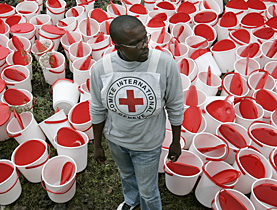
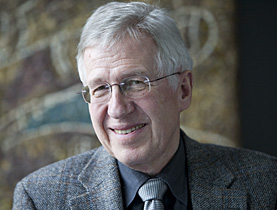
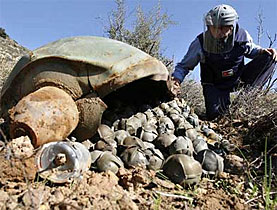
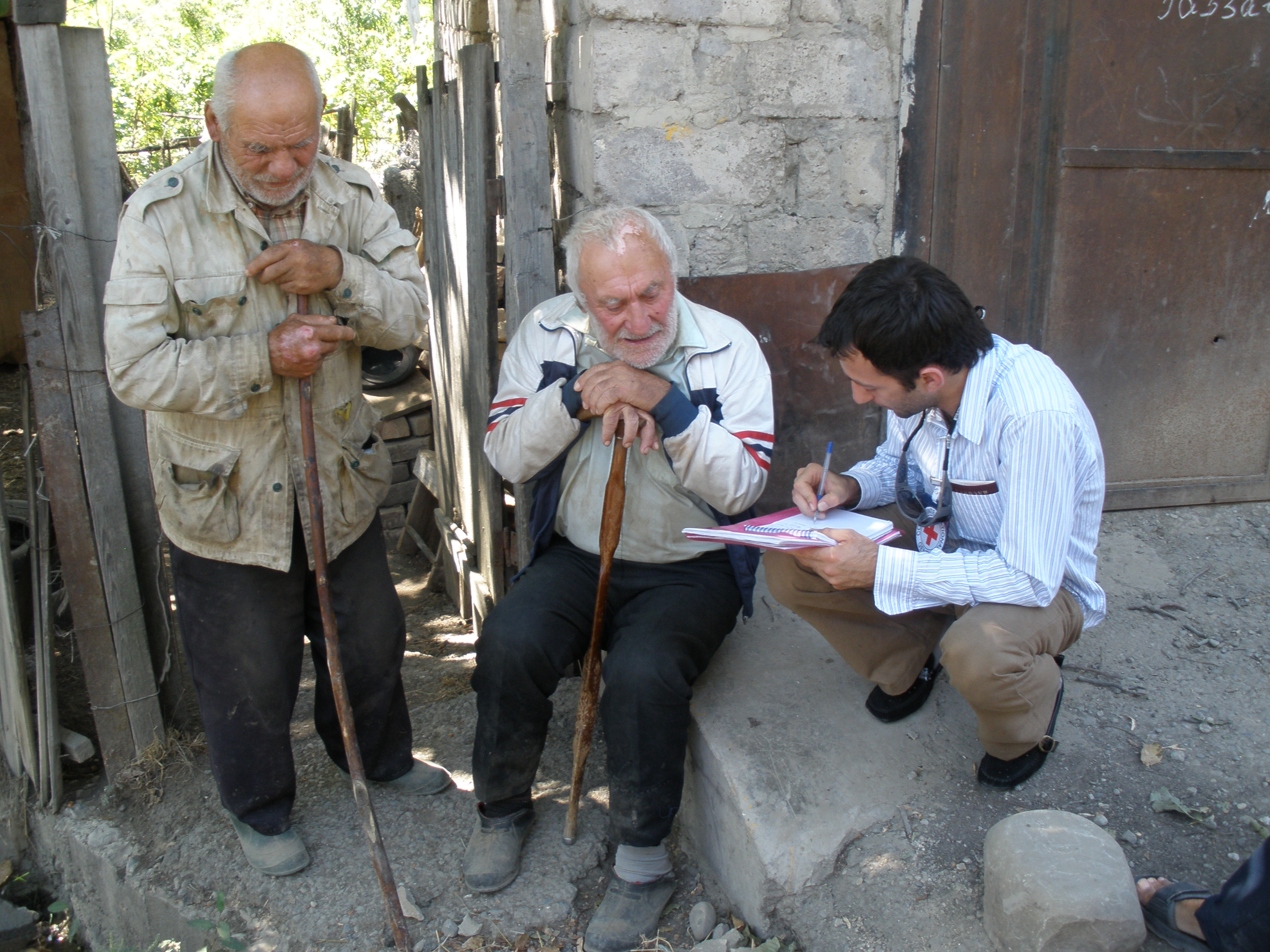
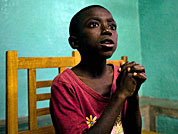
You can find an overview of ongoing debates with our journalists here. Please join us!
If you want to start a conversation about a topic raised in this article or want to report factual errors, email us at english@swissinfo.ch.